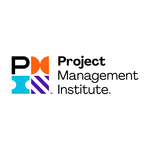PMP® Certification Holders Earn 33% Higher Median Salary Than Non-PMP Certified Professionals According to PMI Salary Survey, Further Raising the Appeal of Pursuing Professional Certifications
PHILADELPHIA–(BUSINESS WIRE)–#PMI—Project Management Institute (PMI) today released the 13th edition of its “Earning Power: Project Management Salary Survey,” which reveals the global project management salary landscape and highlights the importance of continuous education and skill building to stay ahead in today’s job market.
According to the survey, respondents holding the Project Management Professional (PMP)® certification reported higher median salaries than project management practitioners without a PMP certification – 33% higher on average across the 21 countries surveyed. This report is a useful resource for professionals applying for project management roles and organizations seeking to fill them as it helps define the earning power of project professionals around the world.
About two-thirds (66%) of the survey participants reported that their total compensation (including salary, bonus, and other cash incentives) increased over the 12 months before completing the survey. The data also shows a broad consensus that the PMP certification is valuable not only for salary growth but also for career development. For example, in the United States, 55% of practitioners agreed that their PMP certification has been extremely valuable to their career development. To further demonstrate these points, in this video, PMP certification holders discuss the financial benefits they have realized through earning their certifications.
The survey data shows that the median salary of project professionals varies considerably from country to country and across variables. Salary information has been converted to U.S. dollars using normal exchange rates:
- The countries where project practitioners report the highest median salaries are the United States (US$120,000), Australia (US$103,789), Germany (US$99,512), United Kingdom (US$87,993), and Singapore (US$79,464).
- Salary increases with higher positions in virtually all countries, but the rate of increase varies significantly. The most dramatic increases are seen in Saudi Arabia, South Africa, and The United Arab Emirates, where respondents demonstrated increases of more than 60 percent in median salary from project manager I to project manager III.
- There appears to be a connection between salary and the size of projects managed, where most countries demonstrate higher median salaries among practitioners managing larger projects. For example, in Brazil, the median salary is reported to be US$26,507 when the project budget is less than US$100,000 and US$48,121 when the project budget is greater than US$10 million.
While there can be a monetary advantage to earning the PMP certification, there are other benefits, including the fact that certified project professionals are in significant demand across industries and geographies, and hiring managers are recognizing the value of industry certifications and skills-based hiring. Additionally, earning the PMP certification proves professionals have the skills needed for project success, which helps them break into an industry they are passionate about, empowering them to build a career around their passion. Maintaining the PMP certification proves professionals’ commitment to continuous learning, which is especially important as emerging technologies are becoming part of everyday business.
“This reported increase in compensation is a true recognition of the impact PMP-certified project professionals deliver in their daily work. Organizations are relying on project teams to make strategic priorities happen, and project managers are being rewarded for the pivotal skills they offer,” said Pierre Le Manh, PMP, President & Chief Executive Officer at PMI. “Earning potential is a major factor when making career choices, and organizations across the world acknowledge the depth of knowledge and expertise that PMP-certified project managers bring to the table. Becoming part of this globally recognized PMP-certified cohort sets you apart.”
A global summary report and interactive salary tool are available here. PMI members can access a more comprehensive report featuring annualized salary information for the 21 countries surveyed.
About the Report
PMI’s biennial report, “Earning Power: Project Management Salary Survey,” is an industry-leading source of data for both project practitioners and organizations who want to stay current with the salary landscape for today’s project professionals. The report is based on self-reported salary information fielded between March and April 2023 from more than 20,000 project management practitioners, bringing accuracy to the salary figures. The stratified random sampling methodology used for this study results in the ability to report meaningful compensation data for 21 countries.
About Project Management Institute (PMI)
PMI is the leading authority in project management, committed to advancing the project management profession to positively impact project success. We empower professionals to excel in project management practices through our growing global community, knowledge sharing, and best-in-class certifications—driving positive change in organizations and communities. Since 1969, our unwavering mission has been to advocate for the profession by offering life-long learning and connections to sharpen high-demand skills. Today, PMI provides professionals at every stage of their career journey with the globally recognized standards, online courses, thought leadership, events, and tools they need to succeed. With more than 300 chapters around the world, PMI members can network, find mentors, access career opportunities, and learn from peers, working together to drive greater impact. Visit us at: www.PMI.org, linkedin.com/company/projectmanagementinstitute, facebook.com/PMInstitute, and on X @PMInstitute.
Project Management Institute, PMI, and BRIGHTLINE are registered trademarks of Project Management Institute, Inc. All other trademarks are the property of their respective owners.
Contacts
Amanda DeFuria
Regional Communications Lead, PMI
Amanda.DeFuria@pmi.org



